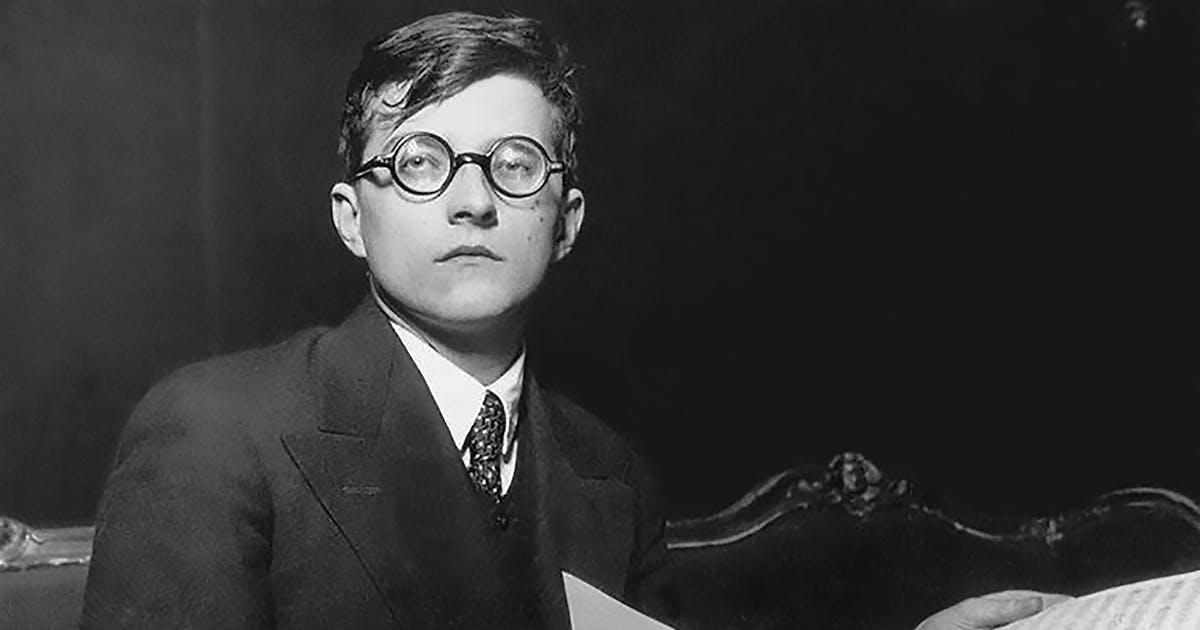Dmitri Shostakovich, a towering figure in 20th-century classical music, left an indelible mark on the world with his profound compositions. His works, often characterized by their emotional depth and political undertones, continue to captivate audiences across the globe. In this blog, we pay tribute to Shostakovich’s brilliance by exploring seven of his most remarkable and unforgettable songs.
- Symphony No. 5 in D minor, Op. 47: Considered a masterpiece, Symphony No. 5 is a reflection of Shostakovich’s tumultuous relationship with the Soviet regime. With its sweeping melodies and dramatic crescendos, this symphony stands as a testament to his ability to evoke both anguish and triumph in the face of adversity.
- String Quartet No. 8 in C minor, Op. 110: Written during a particularly challenging period in the composer’s life, String Quartet No. 8 is a deeply personal and introspective work. Its haunting melodies and raw emotional power make it a favorite among chamber music enthusiasts, showcasing Shostakovich’s unique ability to convey profound human experiences through music.
- Piano Concerto No. 2 in F major, Op. 102: A departure from his symphonic and chamber works, Shostakovich’s Piano Concerto No. 2 is a vibrant and energetic composition. Filled with playful melodies and virtuosic piano passages, this concerto embodies Shostakovich’s versatility as a composer, balancing moments of jubilation with contemplative introspection.
- Symphony No. 7 in C major, Op. 60 (Leningrad): Symbolizing the resistance against Nazi aggression during World War II, Symphony No. 7, commonly known as the “Leningrad Symphony,” is a colossal work of immense power and emotional impact. Its grandeur and sheer magnitude have cemented its place as one of Shostakovich’s most celebrated compositions.
- Prelude and Fugue in D-flat major, Op. 87, No. 15: As part of Shostakovich’s collection of 24 Preludes and Fugues, this particular piece exemplifies his mastery of contrapuntal writing. The ethereal and introspective Prelude leads seamlessly into the intricate and intellectually stimulating Fugue, showcasing the composer’s technical prowess and musical depth.
- Symphony No. 10 in E minor, Op. 93: Regarded as one of Shostakovich’s most significant symphonies, Symphony No. 10 is a monumental and emotionally charged work. From the brooding opening movement to the triumphant finale, this symphony takes listeners on a powerful journey through themes of struggle, resilience, and ultimately, catharsis.
- The Gadfly Suite, Op. 97a: Originally composed as a film score, The Gadfly Suite has since become a beloved concert piece. Its evocative melodies and rich orchestration paint a vivid musical portrait, conveying a range of emotions from tenderness to defiant determination. The suite encapsulates Shostakovich’s ability to create music that transcends its original purpose and resonates with listeners on a profound level.
Conclusion:
Dmitri Shostakovich’s compositions have left an indelible imprint on the world of classical music. From symphonies that tackle the complexities of human existence to chamber works that delve into the depths of the soul, Shostakovich’s music remains as relevant and impactful as ever. These seven remarkable songs provide a glimpse into the genius of a composer whose artistry continues to inspire and move generations of music lovers.


Comments are closed